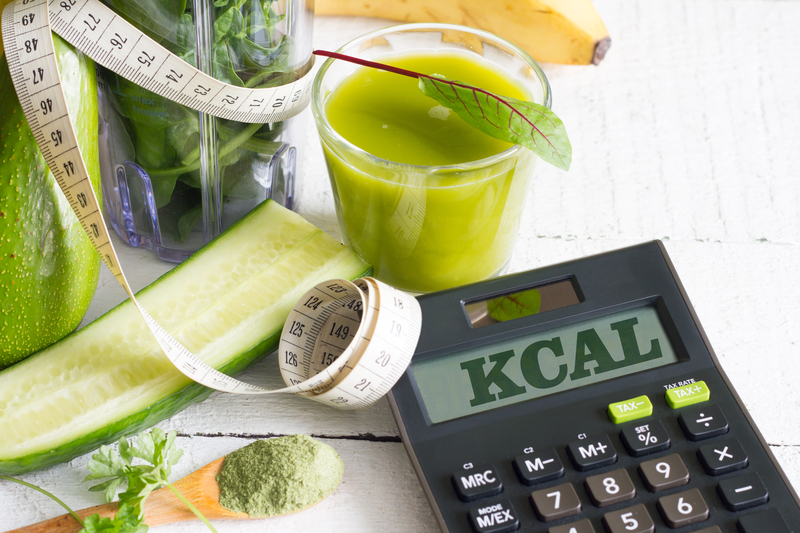6 Common Nutrition Myths Debunked in Under 6 Minutes

Let’s face it: We are overwhelmed with competing information all day, every day—especially when it comes to nutrition. Doctors, scientists, researchers, and companies spend countless hours examining the foods we eat, the nutrients they contain, when we eat, and so much more to help us understand how to eat healthier (or to better market their products). Yet once the results hit the internet (especially social media), that research is often distorted, misunderstood, confused, ignored, biased, or even falsified. Even with a mass of correct information fighting for attention, numerous nutrition myths keep turning up, having been repeated so much that they’re often believed to be fact.
Let’s take a look at just six of the most pervasive nutrition myths and see if we can smash them down once and for all!
6 Nutrition Myths Debunked in Under 6 Minutes
Myth 1: Protein is Bad For You
Have you heard that protein is linked to more calcium in the urine, which leads to bone loss?
The theory is that the body pulls calcium from bones to buffer the acid caused by consuming protein, leading to bone loss. Yet looking at calcium excretion doesn’t provide the whole picture, as studies have actually found that protein intake promotes calcium absorption.
In addition, higher protein intake is often linked to increased consumption of dairy products, which are good sources of calcium. In other words, higher urinary calcium is more likely the result of more calcium coming in. What’s more, current scientific evidence indicates that protein has either a neutral or even protective benefit for bones. 1,2,3
But don’t the kidneys have to work harder on a high-protein diet? While some research shows that higher protein intake can increase a marker for kidney filtration called GFR, research also shows that it does not damage the kidneys, as long as the liver and kidneys are healthy. 4,5,6
Even high intakes of protein are not harmful to the bones or kidneys unless you have a pre-existing condition like liver or kidney damage, a urea-cycle disorder, or a rare disease known as amyloidosis.
Myth 2: Counting Calories is the Best Way to Lose Weight
We’ve gone into the science of and problems with calorie counting—both those coming in and those going out—so I won’t go into the detail here. Suffice it to say, while calories count, food labels can be off by as much as 20%, and exercise tracking can be just as inaccurate, so counting those calories isn’t the end-all, be-all for weight-loss success. It is one of the most common, yet incorrect, nutrition myths.
Instead, if your goal is to lose weight, watch your portion sizes, eat more nutrient-dense whole foods (including a rainbow of vegetables and fruits as well as more fiber- and protein-rich foods), get regular exercise, and ensure your sleep hygiene is in order.
Myth 3: High-Glycemic Foods are Inherently Unhealthy
Raise your hand if you eat carbs, but you avoid any that are higher on the glycemic index. No white rice, white potatoes, corn, carrots, or instant oatmeal for you. After all, you need to keep your sugar and insulin levels steady.
If you were sitting down to a big pile of, say, white rice, this could cause that effect. However, the vast majority of people eat foods as part of a meal — not in isolation. So, if you’re topping your rice with plenty of colorful, high-fiber vegetables and some lean meat, the glycemic load would be much different. If you add some high-fiber fruits and nuts to your oatmeal, again, you’ll change the glycemic load.
Plus, research that compares low-glycemic diets with those that are higher glycemic either had no effect or just a modest effect on metabolic syndrome factors. 7,8 Rather than looking at charts and eliminating nutrient-rich foods like potatoes, look at the meal in total to ensure it provides a balance of protein, healthy fats, vegetables, and yes, even “high-glycemic” whole food starches.
Myth 4: Egg Whites are Better Than Whole Eggs
“Eggs raise cholesterol.” “Limit yourself to just a few eggs a week to prevent heart disease.” “Eggs are high-calorie and high-fat (bad fat!)”
You’ve seen the headlines and maybe even heard this advice from your doctors. But it turns out, all these comments are myths that aren’t actually supported by science, and the effects of eggs on cholesterol levels are overblown. 9,10,11
In truth, eggs are a nutrient-dense food that provides protein, fats, and a wide range of other nutrients. Still not sure? Here are 6 Reasons You Should Eat the WHOLE Egg.
Myth 5: Salt is Bad For You
There is a grain of truth to this one as studies have found that EXCESS salt consumption is associated with high blood pressure, kidney damage, and cognitive decline. That being said, salt is an essential mineral that’s also critical to your health.
The problem with salt isn’t salt itself but ensuring that you get a balance of potassium with salt. In addition, most Americans get excessive (and unbalanced) amounts of salt by consuming loads of processed foods that are full of the stuff (along with other unhealthy ingredients and additives).
If you want to improve your health, focus on decreasing your consumption of processed foods, in general, rather than worrying over every grain of salt. And if you still think that salt is the devil, we took a deep dive into the science of salt in our Expert Opinion: Is Salt ACTUALLY Bad for You?
Myth 6: Raw, Fresh Vegetables and Fruits are Better for You
Admittedly, you wouldn’t want to eat a salad made up of frozen vegetables, but if you’re going to be cooking your vegetables (or fruits) or using them in a recipe, then nutritionally, there’s very little difference between fresh and frozen produce. 12
What about fresh versus cooked? Interestingly, it depends on the vegetable in question. Some foods provide more available nutrients after they’ve been lightly steamed (e.g., kale, spinach, 13 artichokes 14), cooked (e.g., tomatoes, mushrooms 15, carrots 16, asparagus 17, green beans 18), or even grilled (e.g., eggplant 19). Instead of focusing on how they’re prepared, the overwhelming majority of people simply need to emphasize eating a wider variety of more vegetables—both cooked and raw.
Nutrition Myths Wrapped Up
Sadly, there are so many more nutrition myths—some are new, others have been around for decades, and more are a bit more controversial or nuanced. Let us know if there are any other nutrition rules or “facts” you’ve come across that you’d like to see verified or debunked, and our coaches will do their best to provide the real deal—according to the latest reputable science.




 7 Signs Your Body is Seriously Low on Collagen (not just wrinkles)
7 Signs Your Body is Seriously Low on Collagen (not just wrinkles) Health Expert: "Turmeric Doesn't Work (unless...)"
Health Expert: "Turmeric Doesn't Work (unless...)" 3 Warning Signs Your Probiotic Supplement is a Total Waste
3 Warning Signs Your Probiotic Supplement is a Total Waste

